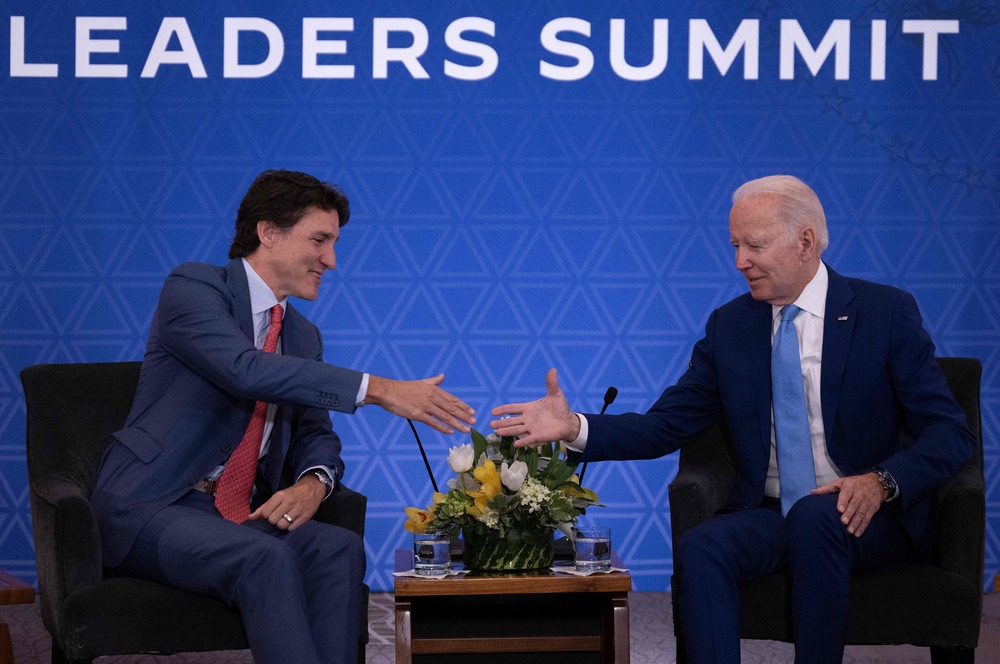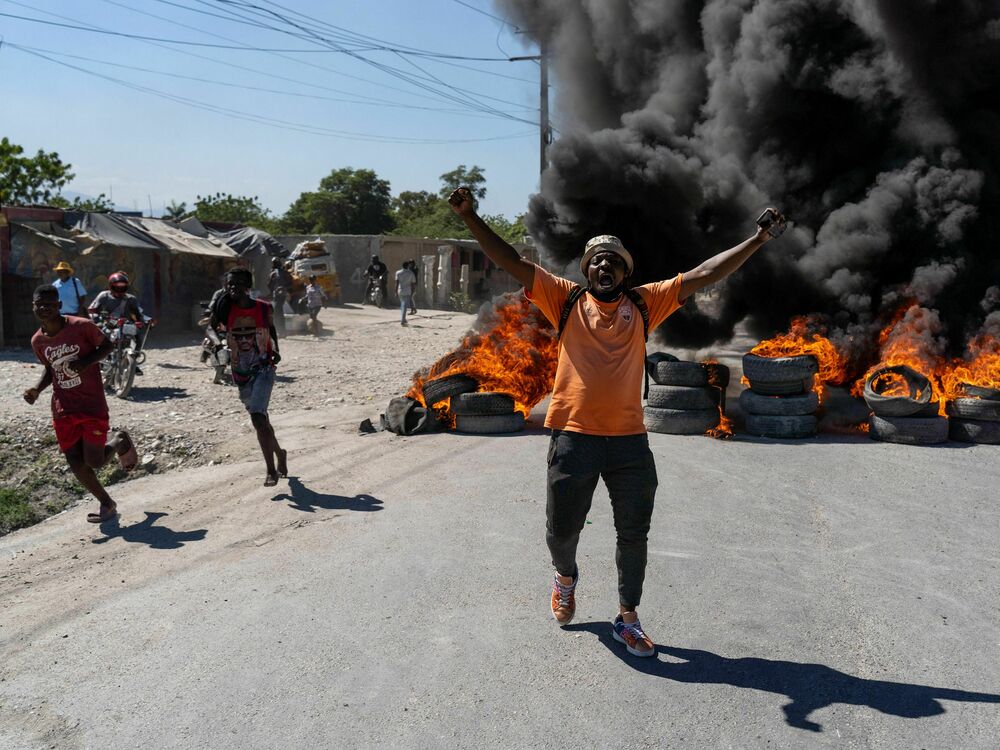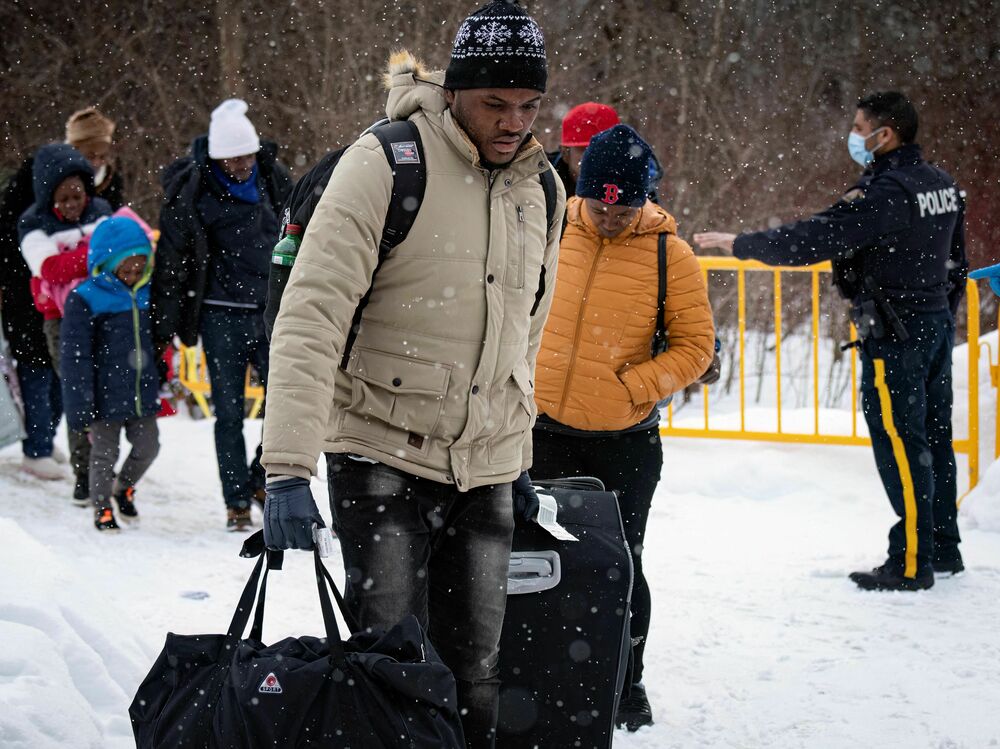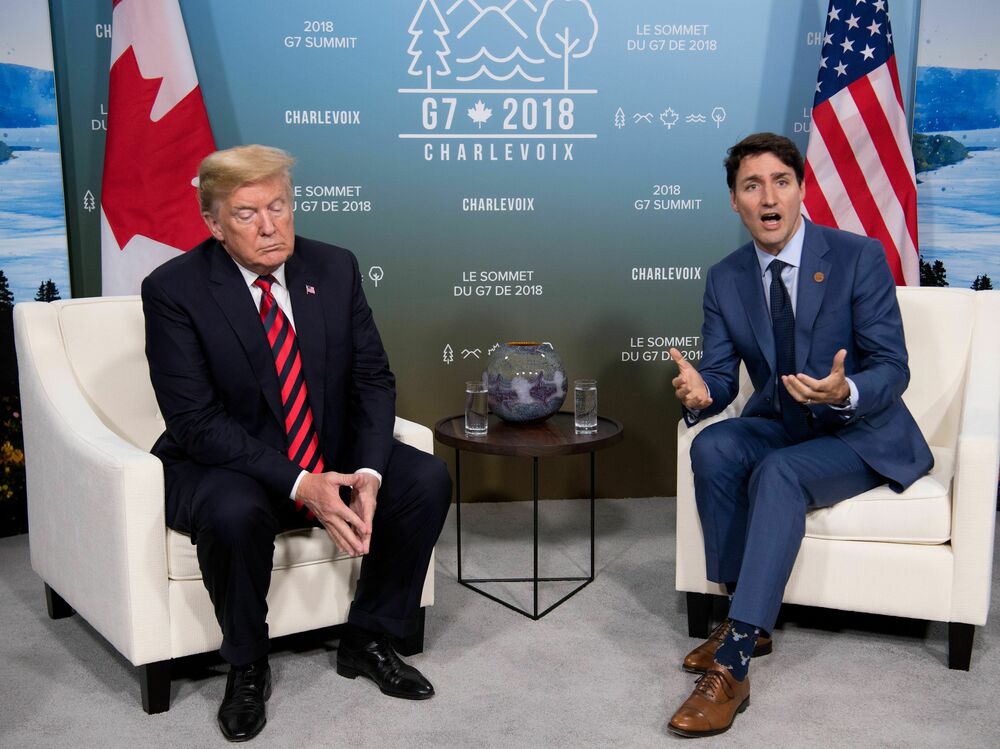
President Biden is set to make his first trip to Canada as president on Thursday, a visit where the security crisis in Haiti will loom large on the agenda.
Fear and violence grip the island nation where heavily armed gangs have taken control. The United Nations has called for international peacekeepers to bolster the country's beleaguered police force.
The United States has suggested that Canada lead such a multinational mission, but Prime Minister Justin Trudeau has recently expressed reservations.
Biden and Trudeau last met in person in January at the North American Leaders' Summit in Mexico City. During that trip, White House national security adviser Jake Sullivan said Biden would talk to Trudeau about leading an effort to shore up Haiti's national police.
"The United States believes that finding a country to help lead that effort is important," Sullivan told reporters, calling it "a significant priority" for the trip. "Canada itself has expressed interest in taking on a leadership role."

The Canadian government has cooled on the idea
But after some due diligence, the Canadian government has cooled on the idea of leading a peacekeeping force, raising concerns about the capacity of the Canadian military to take on such an assignment.
During a visit to Newfoundland last week, Trudeau dismissed the idea of military intervention in Haiti and instead promoted the idea of police training and sanctions for those undercutting Haitian institutions.
"Outside intervention, as we've done in the past, hasn't worked to create long-term stability for Haiti, so we are now working closely with partners on the ground to enable the Haitian National Police and other institutions to stabilize the country in this very difficult time," he told reporters.
Henri-Paul Normandin, a former Canadian ambassador to Haiti, said the government concluded that the chances of success were uncertain, the risks were great and the political support in Haiti were lacking.
"So put all of that together, and Canada said, 'I'm not sure that we want to do this,'" said Normandin, who is now a fellow at the German Marshall Fund.
The White House hasn't given up yet
The White House says Biden plans to discuss the situation with Trudeau in Ottawa.
"We believe that the situation on the ground will not improve without armed security assistance from international partners," said an official with the National Security Council, who spoke on condition of anonymity ahead of the leaders' meeting.
"The United States remains committed to providing assistance to the people of Haiti while also holding accountable those responsible for undermining Haiti's stability."

Migration challenges also on the agenda
The domestic crisis in Haiti has also fueled migration challenges at both the U.S.-Mexico and U.S.-Canada borders. Both leaders face increasing domestic pressure to deal with unlawful migration.
Earlier this year, the Biden administration created a legal pathway for some migrants from Haiti, as well as Cuba, Nicaragua and Venezuela. But it also unveiled new policies making it easier to deny asylum to migrants who arrive at an official port of entry without having first applied for asylum in another country that they traversed through along the way.
While the numbers of migrants at the U.S. southern border are much higher, the numbers entering arriving at the Canadian border are also surging.
And opposition politicians have called on Trudeau to shut down a small road straddling the Canada-U.S. border. The road between New York and Quebec is a well-traveled unofficial border crossing where thousands of migrants have crossed into Canada seeking asylum.
Trudeau has faced some pressure to renegotiate a 2004 treaty with the United States, called the Safe Third Country Agreement. His opposition says it has loopholes that fuel illegal immigration.
"The migration crisis is something which is roiling Canada at the moment," said Eric Miller, an adviser to the Canadian government. "And this is starting to impact the political support for a pragmatic immigration system in Canada."

It's been a while since an American president visited Ottawa
American presidents often make Canada their first foreign trip. Former President Donald Trump did not visit the Canadian capital during his tenure, stopping in Canada only once for a G-7 meeting in Quebec. Trump and Trudeau did not get along.
During his two-day trip, Biden will address Parliament. He and first lady Jill Biden will have a private dinner at Trudeau's residence, and on Friday night, will attend a gala event.
Biden and Trudeau have worked together on support for Ukraine. They also coordinated closely earlier this year when an unidentified object was detected high over Canada's Yukon territory. It was shot down by a U.S. military fighter jet from the U.S. and Canada's North American Aerospace Defense Command.
Biden's inaugural visit to Ottawa was delayed by COVID-19 travel restrictions, but he has since traveled around the world and traveled by train into a war zone before making the short hop north.
Canadians have taken note. They pay close attention to the temperature of the relationship with the United States, said Laura Dawson, a former senior economic adviser at the U.S. embassy in Canada.
"It is important," said Dawson, now with the non-profit Future Borders Coalition. "It's important to have a personal, in-person visit by the president just to reinforce to Canadians that this relationship is still very important to the United States."



.png?w=600)



